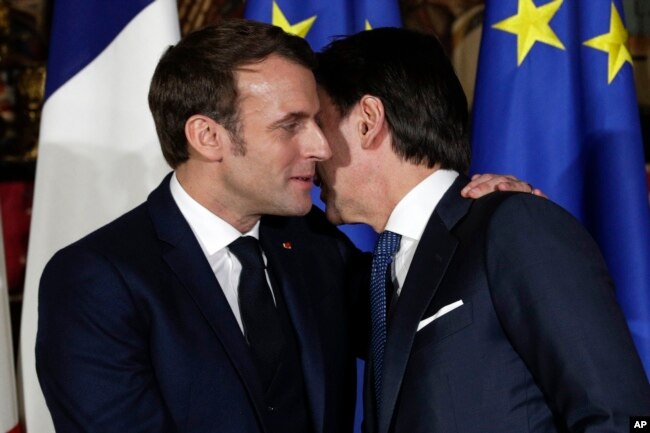From VOA Learning English, this is the Health & Lifestyle Report.
Every culture has some sort of person-to-person greeting. But they are different all over the world.
In some countries such as the United States, handshakes and hugs are the norm. In many European cultures, kisses on the cheek or air kisses are the thing to do when greeting people. And if you play on a sports team, high fives may be the greeting no matter what your cultural background.
These are our traditions during normal times.
The World Health Organization recently declared the new coronavirus a “pandemic.” Health officials all over the world are urging people to wash their hands frequently. People are warned to avoid large crowds and to practice social distancing to control the spread of the disease.
This has led to new ways of greetings around the world.
The new COVID-19 virus came from Wuhan, China. So, it is not surprising that a video featuring something called the “Wuhan Shake” recently went viral.
In the video, a man offers his hand to another man for a handshake. Instead of shaking hands, the two men greet each other by kicking feet – quick right kick, quick left kick. The video then shows more men greeting each other this way. It looks like a dance step or a soccer move.
Other videos are appearing on social media showing people in other parts of the world using the foot tap as a greeting.
Changes in the workplace
Zheng Yu Wen is a television host for Voice of America’s China service. Her job involves contact with many on-air guests. So, she says she has changed her guest greeting policy.
“So, starting today [March 12] I was telling all my guests who appear in the studio we don’t shake hands anymore. We do elbow touch, we do foot tapping or, we say, foot kissing...”
Another journalist in VOA China’s branch, Sharon Wu, is taking a different approach. For now, she has not changed the way she greets guests. However, she has a new after-greeting habit – group hand-washing.
“Recently we’ve had some guests coming to the studio. And for me, I still shake hands with them. But after that I say, ‘Okay. Let’s both go to the restroom and wash hands.’ ”
Mir Abdul Moshref works at Voice of America in the Afghan service. He says that while hugging between men and women is not common, same-sex hugging is. However, those who used to hug have started using new ways of greeting people.
“Usually people are not shaking hands. But, they are greeting verbally. They are not hugging, which is common among Afghans here in my service. We are just elbow-touching and sometimes we are kicking feet [with] each other. And sometimes we are just, you know, having a bump-bump to each other.”
In Iran, people have used a similar greeting called “butt bump.”
Besides the foot kick, butt bump and elbow touch, there are other ways to greet people without touching.
Many Asian cultures already use non-contact greetings. So, people in this part of the world may have an easier time avoiding person-to-person contact. In Japan, a deep bow with both hands kept down to the sides is a traditional greeting.

FILE - In this Thursday, Feb. 27, 2020 file photo, French President Emmanuel Macron, left, puts his arm around the shoulder of Italian Premier Giuseppe Conte and gives him a kiss on both cheeks. (AP Photo/Andrew Medichini, File)
No more kissing ... for now
In Europe, kissing is a common way to greet people. People in France and other parts of Europe often use two kisses one on each cheek or in the air as a greeting. People in Switzerland give three kisses.
Reuters reported that health officials in Switzerland and France have advised people to stop the traditional kiss greeting. And the Italian government has banned kissing in an effort to stop the spread of the disease.
This is not the first time a government has made lip contact between people forbidden.
In 1439, kissing was temporarily banned in England during ceremonies involving King Henry VI. This was to avoid endangering the King’s life during the Plague.
Kissing in public was also banned and punishable by death in Naples, Italy around 1562. The reason?
To stop the spread of disease.
And that’s the Health & Lifestyle report. I’m Anna Matteo.
Have your greetings changed at all? Let us know in the Comments Section.
Anna Matteo wrote this story for Learning English. Hai Do was the editor.
Words in This Story
high five – n. a slapping of an upraised hand by two people (as in celebration)
viral – adj. quickly and widely spread or popularized especially by means of social media
forbidden – adj. not permitted or allowed